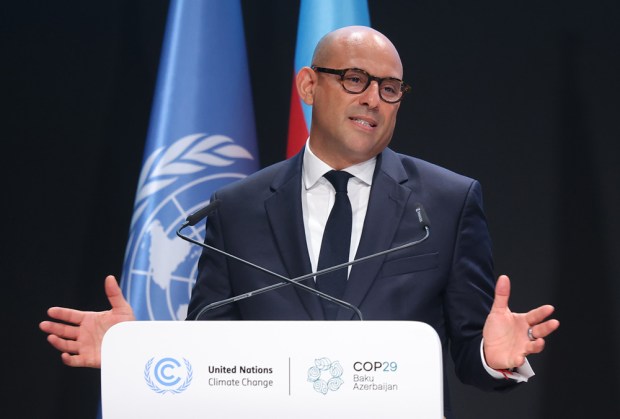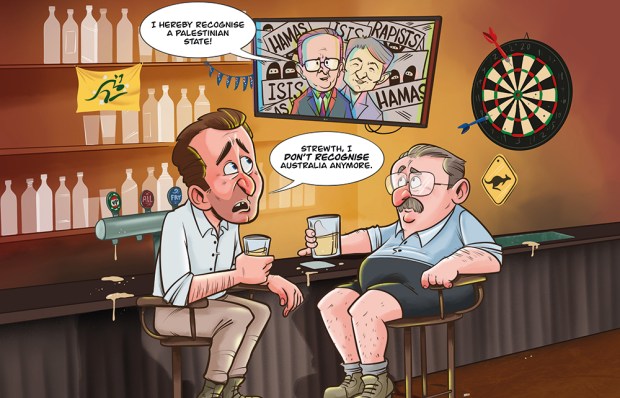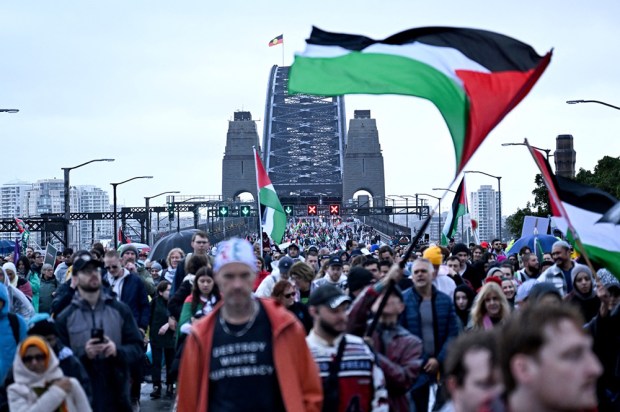With the nightmare of the Sydney siege still fresh in Australian minds comes the not entirely unexpected heightened terrorist alerts regarding Indonesia, and indeed the threat of civil unrest and hotel bombings in India. Julie Bishop took to the airwaves advising Australians to ‘exercise a high degree of caution’, with her warnings only slightly pre-empting similar ones from the US. In Boston, the surviving brother of last year’s Marathon murders goes on trial –possibly to receive the death penalty. Meanwhile, Tony Abbott returns from a flying visit to Iraq to bolster our troops in their fight against ISIS; a trip that ironically had been postponed due to the actions of the late, unlamented Iranian ‘spiritual healer’ and murderer Man Monis. In Ramallah, the Palestinian Authority provocatively try to gain membership of the International Criminal Court in order to pin ‘war crimes’ on Israel’s President Netanyahu following last year’s defensive action in Gaza. That all these events are unfortunately linked via the sick ideology of Islamism should be glaringly apparent, yet, also unsurprisingly, many on the left stagger around in a fog of prejudice and self-flagellation incapable of seeing how the dots actually join.
Islamism is a totalitarian ideology that appeals to the disempowered; offering the promise of world domination to those who perceive themselves as victims, for whatever reason. It is an ideology that feeds on hatred, envy, nihilism and terror. With nothing of value to offer, it promises unusual rewards in heaven, or, alternatively, an orgy of evil, barbarism, extreme violence, sexual perversion and youtube ‘heroism’ in the meantime.
In the more comfortable and prosperous West, it finds followers amongst idiots, the depraved and religious fanatics. Elsewhere, in places where east and west rub uncomfortably up against each other, such as Bali and Mumbai, it appeals to the impoverished who only see hedonism and decadence as the fruits of the West. And in anarchic conflict zones of ethnic tensions Islamism is a potent rallying-call.
Now, Islamism has successfully infiltrated the Israel-Palestine conflict. Hamas, newly partnered with the PA, are little better than IS in terms of their ‘death cult’ ideology (they proudly seek the destruction of every Jewish life, and lavishly reward those who murder Jews) and in their willingness to sacrifice young lives, as is seen with the deliberate placing of rocket launchers in schools and hospitals. To agree to a further Hamas-controlled entity in the West Bank without a guarantee of peace would be the greatest act of folly the Jewish people could perform, yet this is what the current Palestinian gameplan, supported by many in the West and Labor here, envisages.
The war against Islamism must be won, as much for the sake of peace-loving Muslims as for anyone else. As the horrific events in Paris have shown. For Australia, the team led by Tony Abbott is the only one that fully grasps and can hopefully deal with the complex challenges, both at home and abroad.
Thawley Prize winner
And the winner of the Thawley Prize is… Daniel Ward, for his engaging and insightful essay on a quirky footnote in Australian history that has given us protection against overweening bureaucracy. While Daniel figures out how to spend his $5,000 prize money and contemplates where to go for lunch with the judges, (John Howard, Michael Thawley, and our editor Rowan Dean) you can read his winning entry on page viii – before planning your own submission for 2015.
As we wrote last year, the inaugural Thawley Prize ‘aims to celebrate Australia’s achievements, and is a creation of the distinguished former diplomat Michael Thawley, his wife and three sons.’ We thank them profusely for their generosity. And we also thank all the other writers for their excellent entries and wonderful insights. Keen observers of the Australian political scene will also be aware Michael Thawley was recently appointed head of the Department of Prime Minister and Cabinet. Our congratulations.
We also thank John Howard for his time. He describes Ward’s essay as ‘captivating and perceptive, with a keen sense of historical detail.’
Winner Daniel Ward, a former student at Sydney Grammar and Sydney University, is currently completing postgraduate studies at Oxford. The idea for his essay came from a confluence of two events – a speech delivered by Justice Virginia Bell at Redfern Legal Centre that Daniel attended and a story in John La Nauze’s 1972 work, The Making of the Australian Constitution. Enjoy.
Got something to add? Join the discussion and comment below.
You might disagree with half of it, but you’ll enjoy reading all of it. Try your first month for free, then just $2 a week for the remainder of your first year.












